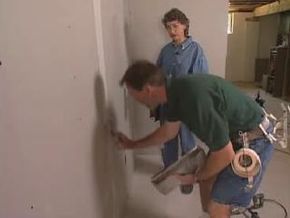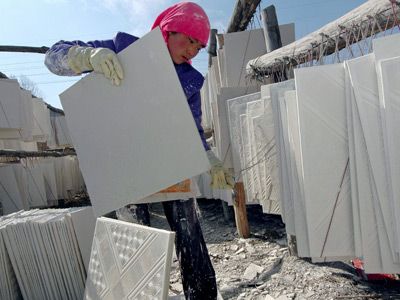Key Takeaways
- Drywall screws are specially designed with deeper threads to securely attach drywall panels to metal or wood studs without easily dislodging.
- There are two main types: S-type screws for metal studs and W-type for wood studs, with variations in length to ensure proper penetration and hold.
- The threads of drywall screws can be coarse or fine, affecting their insertion speed and hold strength, and there are also self-drilling and corrosion-resistant options for specific applications.
Drywall screws have deeper threads than regular screws, which prevents them from dislodging easily from the drywall. They are made of steel and require a power screwdriver to drill them into the drywall. In addition, drywall screws are often used along with plastic anchors that help distribute the weight of the hung object evenly over the surface.
Drywall screws are classified according to length and pitch. There are two common types of drywall screw lengths: S-type and W-type. S-type screws are designed for attaching drywall onto metal. Their sharp points make penetrating the surface easier. W-type screws, on the other hand, are longer and thinner. They are designed for installing drywall onto wood. Although drywall panels differ in thickness, it’s usually sufficient to drive W-type screws into the wood at least 0.63 inches (1.6 centimeters), and for S-type screws to penetrate a metal stud to a depth of 0.38 inches (0.9 centimeters) If you are screwing through multiple layers, make sure the length of the screw is enough to penetrate at least 0.5 inches (1.3 centimeters) into the second layer.
Advertisement
The pitch of the screw can be classified as either coarse or fine. The more coarsely threaded the screw, the tighter it holds. Plus, since it contains fewer threads, it screws into place faster. On the other hand, although finely threaded screws take longer to insert, they have sharper points, making it easier to insert the screw in the first place. You’re meant to use coarsely threaded drywall screws when you’re attaching the drywall to softwood studs, while finely threaded drywall screws are meant to be used when you’re attaching the drywall to light metal studs.
In addition, specialty drywall screws are designed for specific purposes. For example, when you install drywall onto heavy metal studs, it’s best to use self-drilling drywall screws, eliminating the need to drill holes in advance. Additionally, there are coated drywall screws that protect against corrosion.
Advertisement

